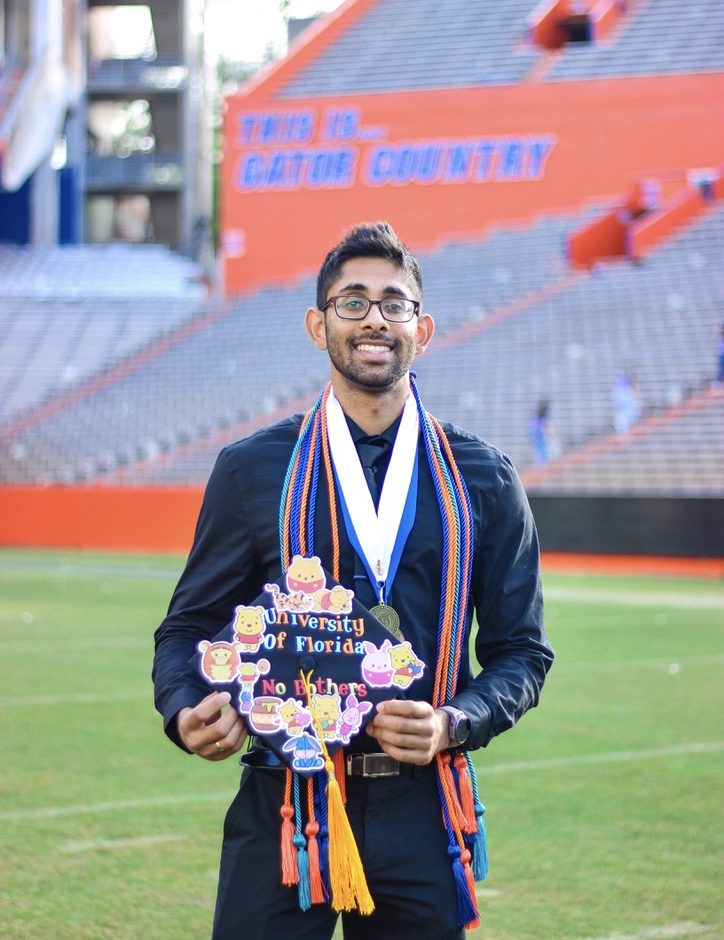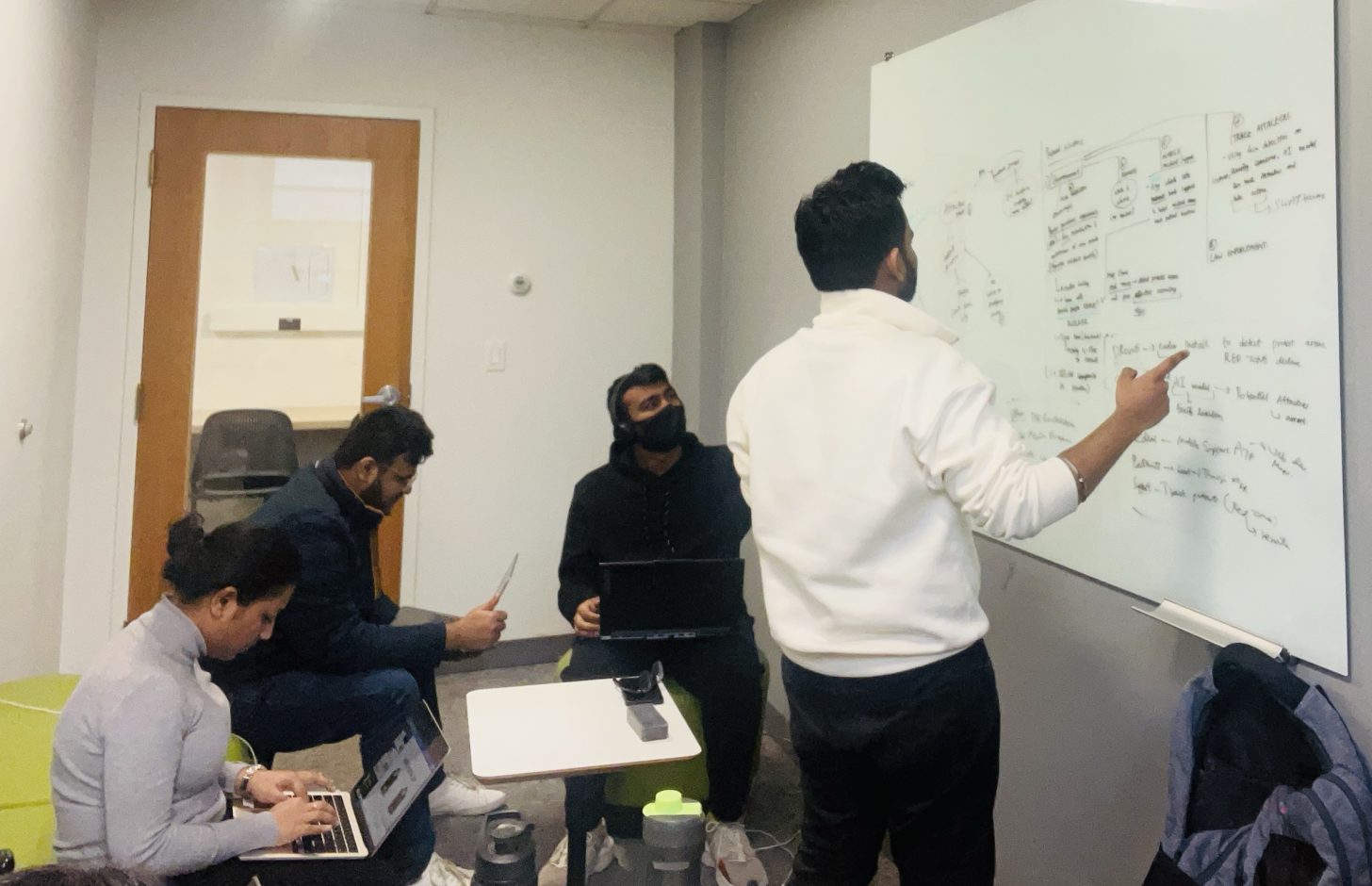


Meet Kevin Kapadia, a Ph.D. candidate at the University of Southern California (USC) and SENTRY research assistant for the Advanced Sensing Technology and Risk Assessment, Prediction and Deterrence research areas. In alignment with SENTRY’s mission to safeguard our communities and mitigate attacks on soft targets and crowded places, his research focuses on the prevention and mitigation of school shootings. Read on to learn about Kevin’s background, SENTRY research, and personal interests.
Kevin plans to graduate from USC in May of 2027 with a Ph.D. in Quantitative Methods and Computational Psychology. His academic interests combine research design and data analysis, which he applies to his SENTRY research to identify risks and determine how people will respond in emergencies.
He is creating a school shooting simulation to predict behavior in response to an attack with SENTRY’s Advanced Sensing Technology research area, which includes providing psychological background materials and designing manipulations of data, including crowd behavior, threat location, and school facility design. In support of SENTRY’s Risk Assessment, Prediction, and Deterrence research track, he studies the perception of school shootings by parents, students, and teachers in response to common scenarios.
While obtaining his bachelor’s degree in Statistics and Behavioral Psychology from the University of Florida in 2018, Kevin served as a reservist in the United States Marine Corps. “Most of my training was concerned with the physical protection of Americans from foreign attackers,” he shares. This military experience remains a source of enduring motivation for his work with SENTRY. He explains, “Since most threats now originate within the United States, I wanted to be able to contribute to the Department of Homeland Security in any way I could. SENTRY provided the best opportunity for that.”
Kevin hopes to build a career centered around eradicating threats to public safety. He intends to work for the government on projects related to homeland security or pursue a career in academia, as a college professor. Kevin describes his vision for change in the homeland security landscape as follows.
Outside of his work with SENTRY, Kevin competes in triathlons. He is currently training for an Ironman distance race with the USC Triathlon Team. When not running, swimming, or biking, Kevin enjoys playing video games with friends.

 4/25/2024
Blog Post
4/25/2024
Blog Post
 2/27/2024
Blog Post
2/27/2024
Blog Post
 2/13/2024
Blog Post
2/13/2024
Blog Post